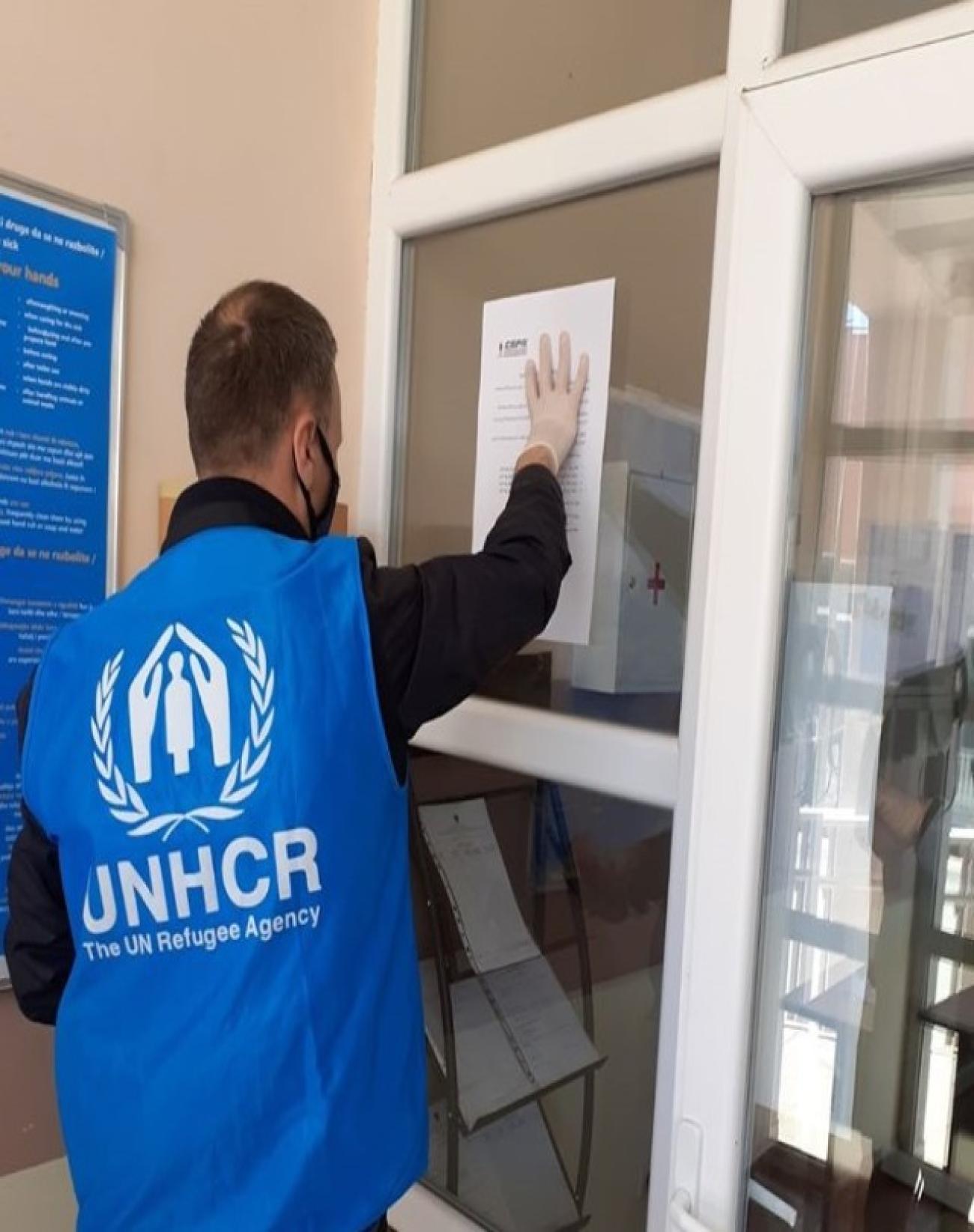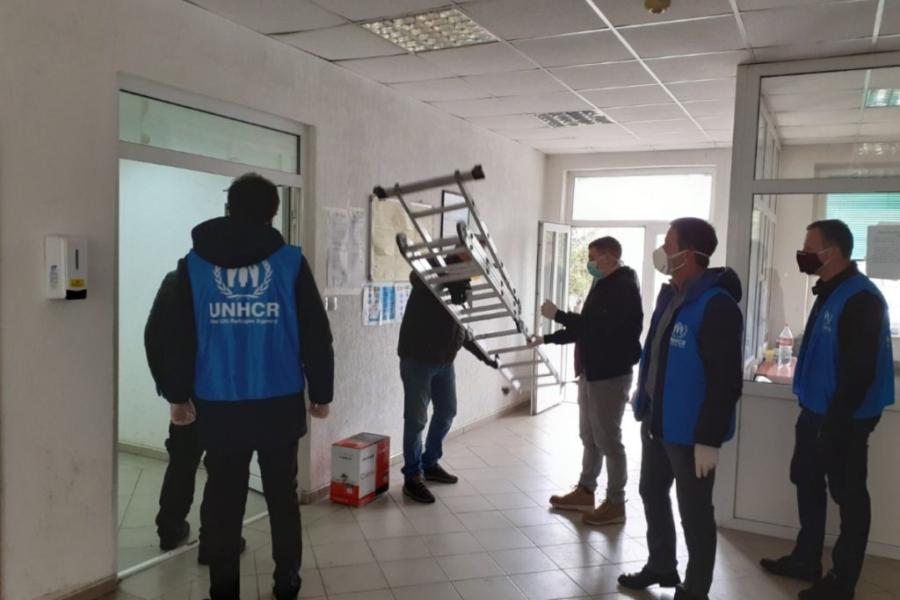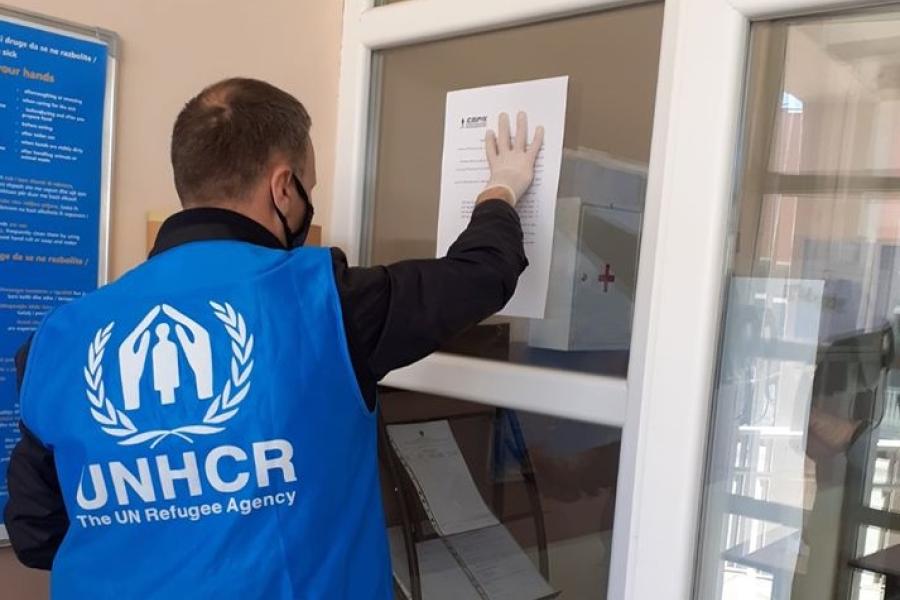Asylum-seekers Receive Legal Advice and Psychological Assistance Online

UNHCR facilitates internet access for asylum-seekers to ensure they can connect with relatives and receive vital legal information, despite COVID-19.
We at UNHCR are aware that mental health is crucial when going through the hard times of quarantine, and work to provide everyone with the needed assistance.
Prishtinë/Pristina – “When the public transport stopped, we had to walk for quite some time and find the nearest place that allowed us to connect to internet. There would usually be tens of people all at the same spot and taking the risk of exposing themselves. I was particularly disturbed when there were young children with us,” said Omar*.

The poor connection from overloading was not the main concern for Omar and other asylum-seekers in Asylum Centre in Magura, Lipjan/Lipljan municipality, but rather the impossibility of applying social distancing rules.
The COVID-19 situation has forced authorities to impose certain restrictions in order to prevent the spread of the virus. Until a few days ago, asylum-seekers in Magura and Vranidoll had no access to information and communication because there was no internet in the premises.
A powerful tool for well-being and education was missing during these desperate times
Asylum-seekers say that such restrictions made it very hard for them to communicate with their relatives. They had to go out of the centre and find places with free internet connection. When they finally found it, a lot of people would gather at the same time.
Omar continues by saying that this allowed them to access the internet only once per day and even that time was limited since they had to get back to the centre on time. But not anymore, now that UNHCR has taken the initiative to grant them access to the internet, he can talk to his wife and children whenever he wishes to.
Asylum-seekers must have access to legal, psychological and social services as well. Legal advice on the asylum procedure, their rights and obligations started to get postponed due to the lack of direct communication.
After installing the internet, the asylum-seekers in Magure and Vranidoll virtually meet their legal representatives frequently. At first they were a little sceptical that it would not have the same outcome but soon they realized that it was just as effective as meeting them in person.
Another asylum-seeker, Ali* says “We thought that this was just a way of getting around from not coming to the centre, but it has proven to be just the same.”
Most importantly, asylum-seekers continue to receive psychological assistance online. We at UNHCR are aware that mental health is crucial when going through the hard times of quarantine, and work to provide everyone with the needed assistance.
Women in asylum centres have found the way of benefiting also. Some of them are taking part in online psychosocial counselling.
Now asylum-seekers in Kosovo are properly informed and follow health recommendations
“We can, learn how to apply health suggestions and try to do our best to keep the centre virus-free. Now we know the situation here and also are aware of the latest changes in movement restrictions”, says Ahmad*, an asylum-seeker currently residing in Magure, who views this as the best advantage at this time.
The internet is of great importance since it serves as a window of direct communication for all people residing in asylum centres. They don’t feel lonely or isolated anymore. Legal representatives are available to them, this way ensuring that they receive proper advice on their applications for international protection.

The internet testing phase began in the first week with psychosocial counselling, both individually and in groups. The number of the interested people was very high and it has risen ever since. They feel very grateful for this opportunity and thank UNHCR for making their journey much easier.
Soon children in asylum centres will have the opportunity to attend online classes.
Everyday we all hope that people in need are heading for a better future, and it is our duty to facilitate their path by protecting their rights.
The activities with asylum seekers at Asylum Centres are funded by the EU Service for Foreign Policy Instruments within the project “Addressing COVID-19 Challenges within the Migrant and Refugee Response in the Western Balkans”.
*The names have been changed to protect identity of the respondents.


